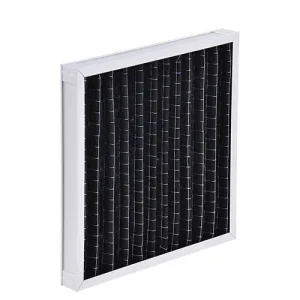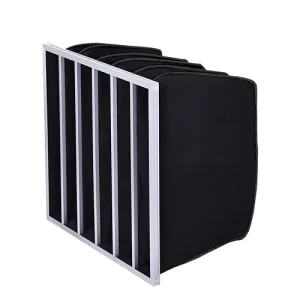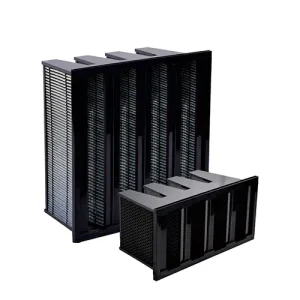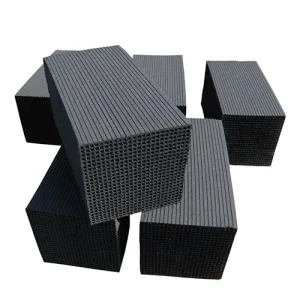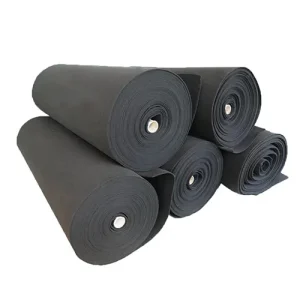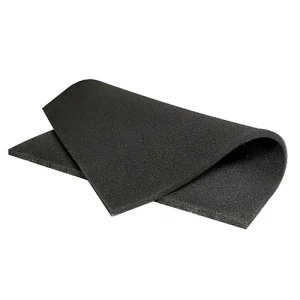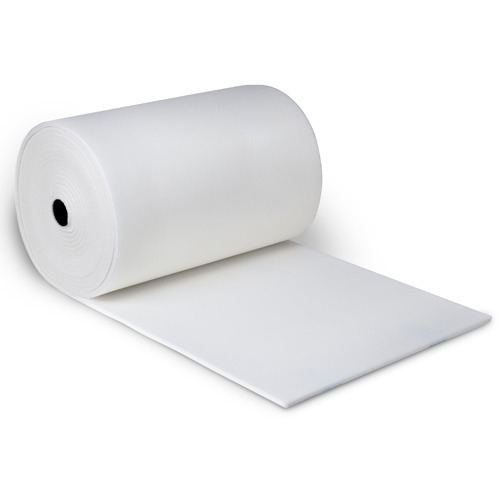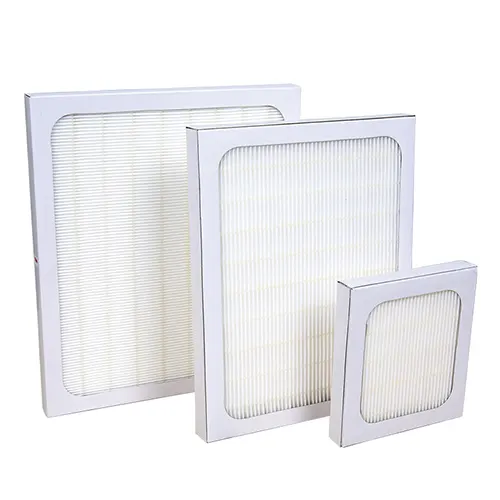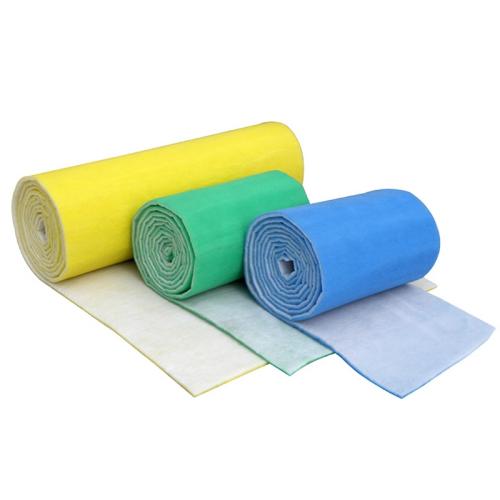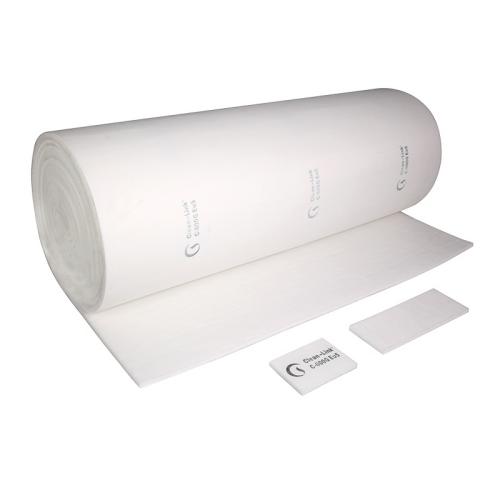Everything You Should Know About Activated Carbon Air Filters
Indoor air quality is crucial for health and well-being, as most people spend a significant amount of time indoors. Poor air quality can lead to health issues ranging from allergies and respiratory problems to more serious long-term conditions.
Activated carbon air filters are great at capturing airborne pollutants, including volatile organic compounds (VOCs), odors, and gases, effectively purifying the air.
What Are Activated Air Filters?
Activated carbon air filters are designed to improve indoor air quality by capturing gases, volatile organic compounds (VOCs), odors, and smoke through a process called adsorption.
These filters contain activated carbon, also known as activated charcoal, which is a form of carbon processed to have small, low-volume pores. These pores increase the surface area available for adsorption or chemical reactions, making the filter highly effective at trapping contaminants that pass through it.
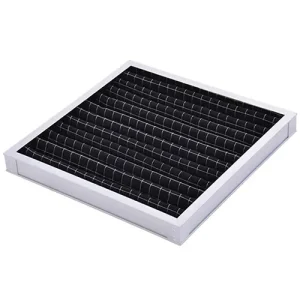
Do Activated Carbon Air Filters Work?
The activated carbon in these filters has a large surface area due to its porous nature, which adsorbs (attaches) the molecules of the contaminants as air flows through the filter.
And yes, carbon air filters do work. They are excellent for substances that standard mechanical filters cannot capture.
What do Carbon Air Filters Remove from Air?
Activated carbon air filters are adept at removing a variety of substances from the air, primarily those that are gaseous or molecular.
Odors: Traping odors from cooking, pets, smoke, and other organic sources is one of the tricks that carbon filters do.
Volatile Organic Compounds (VOCs): VOCs include compounds from paints, cleaning supplies, and building materials are the substances carbon filters targeted.
Chemical Vapors: Chemical vapors generated during industrial processes or escaped from various solvents can be dangerous to humans.
Gases: Certain gases, like those from stoves and industrial emissions, can be absorbed by activated carbon filters.
There are things carbon filters can’t remove
Allergens: dust mites, pollen, or pet dander
Bacteria and Viruses: biological contaminants are too small to be captured by activated carbon filters
Fine Particulate Matter: Tiny particles like dust and smoke particles
Are Activated Carbon Air Filters Safe?
 Photo: Antoine Rault
Photo: Antoine Rault
The activated carbon itself is a non-toxic substance. When used as part of an air filtration system, it effectively reduces odors, VOCs, and other gaseous pollutants in the air without releasing any substances back into the environment.
For individuals with specific chemical sensitivities or respiratory conditions, carbon filters can be particularly beneficial, as they can remove a range of irritants and potentially harmful substances from indoor air.
How Long Do Carbon Air Filters Last?
Over time, the activated carbon becomes saturated with the contaminants it has adsorbed, and the filter will need to be replaced to ensure continued effectiveness and prevent the trapped pollutants from being released back into the air.
Some actors can affect the longevity of an activated carbon air filter:
Level of Air Pollution: In situations with higher pollution concentrations, filters are likely to become saturated more quickly due to the constant work of filtering out pollutants.
Quality of Carbon Filter: The amount of activated charcoal and the density of the filter material play a role in how long the filter lasts. Higher-quality filters can purify the air for a longer duration.
Size of the Air Filter: Never stress your filters. Do the math to find out the best filter-to-space ratio. A correctly sized filter for the space will last adequately long.
Tips Before Buying
Understand Your Specific Needs: Determine what you want the carbon filter to achieve. Are you primarily targeting odors, VOCs, or chemical gases? Different carbon filters are designed to target different types of air contaminants.
Filter Size and Compatibility: Check the size of the filter you need. Ensure it is compatible with your existing HVAC system or any other device in which you intend to use the filter. Incorrect sizing can lead to ineffective filtration or airflow issues.
Filter Quality: Consider the quality of the carbon filter. Higher-quality filters with more activated carbon and higher density will generally last longer and be more effective.
Can you clean carbon air filters?
No, a carbon air filter is not supposed to be clean to restore its original functionality.
The primary mechanism of these filters is adsorption, where contaminants are trapped on the surface of the activated carbon. Once the pores of the carbon are saturated, they lose their ability to capture further contaminants.
Washing or vacuuming can damage the structure of the carbon, reducing its effectiveness.
For optimal performance and to maintain air quality, it’s important to follow the manufacturer’s recommendations on the lifespan of the filter and replace it when necessary.
CleanLink Offers Reliable Activated Carbon Air Filters
How the activated carbon material was made
From the raw materials, we begin with the selection of carbon-rich source materials for their high carbon content and ability to produce a highly porous final product.
The materials then have to go through a process that involves heating them in the absence of oxygen at temperatures between 600-900 degrees Celsius, removing water and volatile organic compounds from the material.
Next, the carbonized material is “activated”, exposing the carbon to an oxidizing atmosphere, such as steam or air, at a very high temperature(800-1000℃). This process develops a highly porous structure by eroding the internal surfaces and walls of the carbon.
The activated carbon is then incorporated into a filter media that will be further used to create a carbon air filter.
Activated Carbon Air Filter Applications
Activated carbon air filters are used in a variety of settings due to their ability to adsorb gases, odors, and volatile organic compounds (VOCs).

Manufacturing
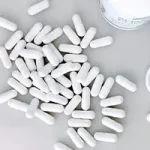
Pharmaceuticals
Feel free to talk to filter experts in CleanLink if you have further questions or need assistance in air filtration.
